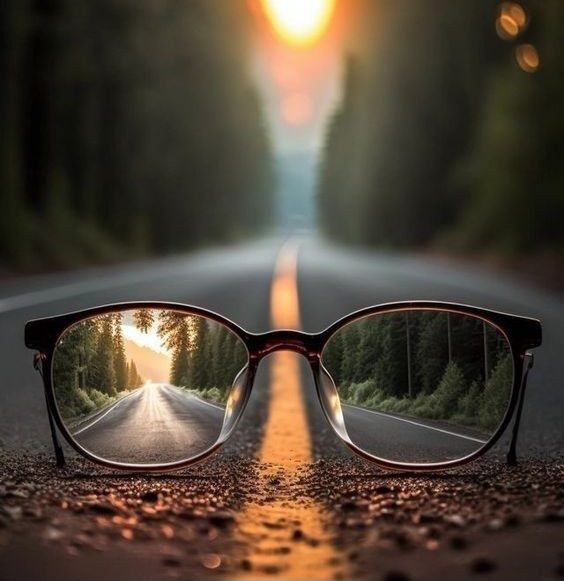Do We Really Need to Know So Much? The Paradox of Knowledge in a Curious Age
Introduction: An Age of Boundless Information
In today’s world, knowledge is at our fingertips. With just a few taps, we can explore complex scientific theories, glimpse the lives of distant strangers, or gain insight into virtually any topic imaginable. But while the drive to know more has led to remarkable human progress, there’s a question worth pondering: Has our endless thirst for knowledge created more problems than it’s solved? This isn’t about shunning knowledge but rethinking the costs of knowing “too much.”
The Roots of Human Curiosity: A Survival Instinct
Since our early ancestors first learned to wield fire or make tools, curiosity has been essential for survival. Neuroscientists suggest that our brains evolved to find pleasure in discovery, releasing dopamine when we learn new things. This “curiosity reward” helped early humans understand their environments, avoid threats, and enhance survival.
Yet, today’s curiosity isn’t solely about survival; it’s a pursuit of knowledge for knowledge's sake. From the mysteries of the cosmos to the microscopic world of atoms, we’re driven to uncover every secret. But are there boundaries to what we should know? And what are the consequences when knowledge outpaces wisdom?
Knowledge and Control: A Double-Edged Sword
Many people pursue knowledge to gain control over their lives and environments. Knowing more about health, finances, relationships, or technology can indeed provide a sense of security and competence. But there’s a paradox: as our understanding grows, so too does our awareness of uncertainty.
Take medicine, for instance. Advancements have brought life-saving treatments and longer life expectancies, yet they’ve also led to new ethical dilemmas—should we edit human genes? Can we delay aging indefinitely? The very knowledge that gives us control can sometimes create confusion and raise questions that challenge our moral foundations.
The Burden of Knowing: Psychological and Societal Costs
1. Information Overload and Anxiety The human brain can only process a limited amount of information at once. Studies show that excessive exposure to information can lead to “cognitive overload,” where the mind becomes overwhelmed, leading to stress, confusion, and even decision paralysis. Psychologists now recognize "information fatigue syndrome" as a real condition, where people feel constantly bombarded by news, alerts, and updates, often resulting in mental exhaustion.
Platforms like social media have amplified this issue. While they offer quick access to knowledge, they also create a sense of inadequacy. When everyone else seems informed, we feel a subtle pressure to keep up, often at the cost of our peace of mind.
2. Paradox of Choice and Decision Fatigue Psychologists have also documented the “paradox of choice”: when people are exposed to too many options or too much information, they struggle to make decisions, sometimes experiencing anxiety about making the “wrong” choice. Information about everything, from health and finance to personal development, now exists online, and while it’s empowering, the constant influx of advice can make people feel perpetually unsure about what’s best.
3. Ethical Dilemmas and Existential Questions Some scientific advances raise profound ethical questions. Gene editing, for instance, has the potential to eliminate hereditary diseases, but it also poses questions about human identity, privacy, and equality. By striving to know everything, we sometimes find ourselves in ethical territory where answers aren’t straightforward, and the consequences are difficult to foresee.
4. Existential Dread and the Weight of Global Knowledge Global awareness can also be a burden. People now have instant access to information on natural disasters, economic instability, political unrest, and environmental crises around the world. Research indicates that such constant exposure to negative news can lead to “headline stress disorder,” causing people to feel anxious, helpless, or even depressed. Paradoxically, knowing more about global issues sometimes leaves people feeling less empowered to make a difference.
The Case for Embracing “Enough” Knowledge
1. Selective Curiosity and Intentional Ignorance Rather than viewing curiosity as an endless quest, some psychologists advocate for “selective curiosity.” This doesn’t mean being uninformed but being deliberate about what we consume. In fact, philosopher Herbert Simon famously noted, “A wealth of information creates a poverty of attention.” Selective curiosity helps people conserve their mental resources, focusing on knowledge that truly adds value to their lives and filtering out distractions.
2. Practical Knowledge vs. Excessive Information Another way to manage knowledge is by distinguishing between “practical” knowledge (which directly benefits our lives) and “excessive” information (which might only add noise). For instance, understanding nutrition and basic health principles is beneficial, but obsessing over every new health trend might not actually contribute to a healthier life. Learning to appreciate “enough” knowledge may be a pathway to a more peaceful, balanced life.
3. Simplicity and the Beauty of Unknowing Throughout history, philosophers and spiritual leaders have warned of the dangers of knowing too much. From Socrates’ “I know that I know nothing” to Buddhist teachings on the value of mindfulness over intellectualization, the concept of simplicity has deep roots. Sometimes, simplicity—embracing mystery and accepting that we don’t need all the answers—can be more liberating than exhaustive knowledge.
Conclusion: Walking the Fine Line Between Curiosity and Contentment
So, do we really need to know as much as we think we do? While curiosity and knowledge are powerful, perhaps our greatest wisdom lies in knowing when to stop. Embracing the unknown, and learning to value “enough,” can sometimes bring a clarity that endless pursuit of information does not.
Knowledge is undeniably transformative, yet its true value may lie in a balance that honors our curiosity without sacrificing our peace. In an age of boundless information, the ultimate act of wisdom might just be choosing to stay grounded, valuing quality over quantity, and finding freedom in letting some mysteries remain unsolved.


Comments
Post a Comment